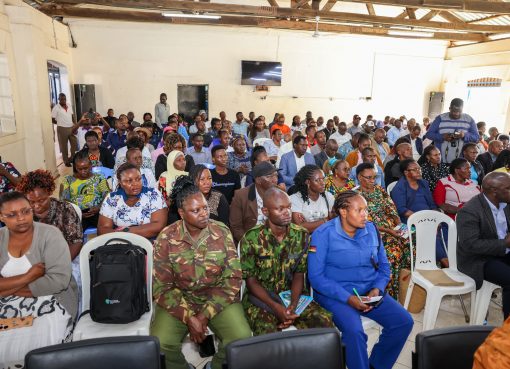The government has been urged to include individual enterprise funds among other affirmative funds during this financial year, to enable funding for exceptional ideas that cannot be implemented by groups. In order, to encourage sole proprietorship that has shown more accomplishments in other countries.
The Director for Modern Change Achievers, Jackson Njonjo said a number of people in the country have ‘ideas’ that would easily spur the economy and create employment but they lack funds, and it’s difficult for groups to work in a set-up of innovatory ideas since the former prefer the known and tasted, such as purchasing motorbikes.
He noted with concern that the Uwezo, Women’s and Youth Enterprise funds that provide group loans have hardly achieved their intended purposes of job creation since most of the beneficiaries tend to share the money among themselves, hence defeating the purpose of joint enterprises.
Njonjo said the pieces of training on how to manage the affirmative funds have failed to change the mindsets of going solo, because a majority of the groups are created arbitrarily without a common agenda.
Also, he said the few groups that survive tend to have endless differences caused by real or imagined siphoning of funds by the leaders, who in most cases lack managerial skills.
“As a trainer, my major concern is the lack of values and trust in the groups, and unfortunately, in most cases some of the issues raised by the members are true,” he said.
The director claimed that it is difficult for a random or casual group formed for the purpose of just meeting the requirements of accessing the funds to bond, and work together as a unit because their visions are divergent.
In addition, he said sole proprietorship ought to be encouraged and funded because in the current, technological world, individuals with ground-breaking ideas such as the gurus of social media have contributed a lot to the economic growth of their countries.
Besides, he said the country was blessed with an abundance of brilliant minds, but they lack funds to actualize their ideas, and financial institutions consider them as high-risk borrowers who are likely to abscond loan payments.
The affirmative funds which commenced in the year 2013 provide interest-free credit to women, youths and persons with disabilities. One of the requirements of such groups was training before the funds are accessed.
However, Njonjo maintained that mere training cannot change a groups’ negative attitude of pre-planned deceit of joining for the sake of getting a share of the funds.
He added that much as the combined business has a role in spurring economic growth, individual enterprise, that seems to be popular, was also noble and ought to be encouraged through state funding. He was speaking during a press conference in Nakuru town.
By Veronica Bosibori





